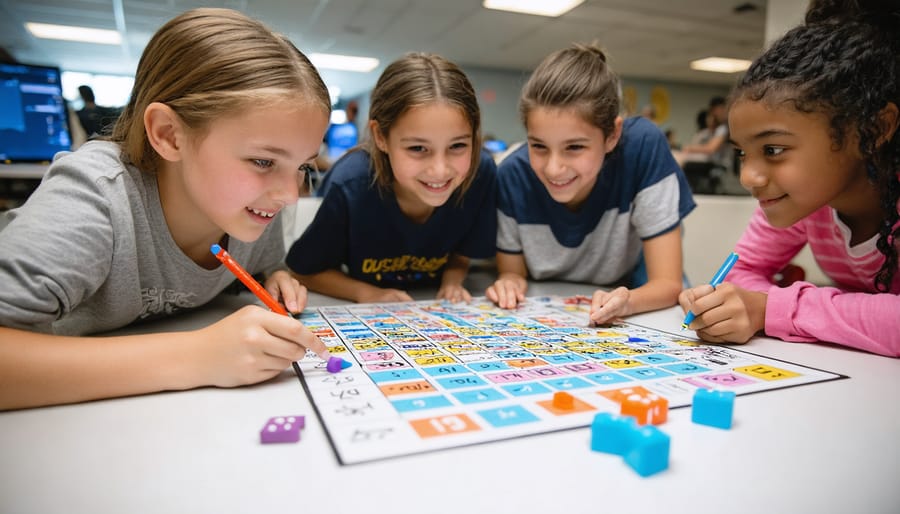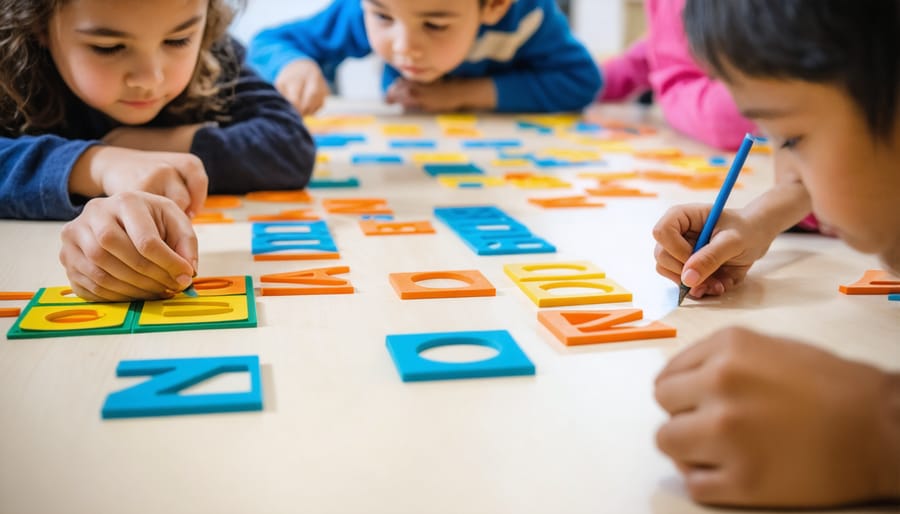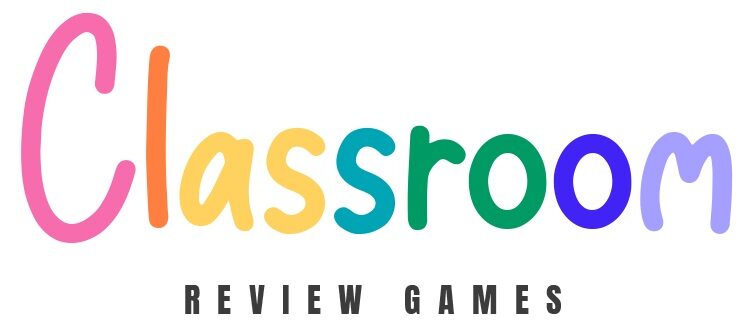Supercharge Your 6th Grade Classroom with These Engaging Word Games
Transform your 6th-grade classroom into an interactive learning hub with fun word games and educational challenges that spark genuine engagement. Educational games serve as powerful tools that bridge the gap between traditional learning and the digital experiences today’s students crave. By incorporating strategic gameplay into core subjects like math, science, and language arts, teachers can create an environment where learning feels less like work and more like discovery.
Games specifically designed for 6th graders target critical thinking skills while maintaining age-appropriate challenge levels. Whether it’s vocabulary battles that strengthen language skills or math quests that reinforce pre-algebra concepts, these interactive experiences provide immediate feedback and measurable progress. Students not only retain information more effectively but develop collaborative skills and healthy competitive spirits that extend beyond the classroom.
Choose games that align with your curriculum goals, adapt difficulty levels to match student abilities, and watch as reluctant learners transform into enthusiastic participants.
Why Word Games Work Magic in 6th Grade Learning
Building Vocabulary Through Play
Games provide an exciting way to increase student engagement while building essential vocabulary skills. Word-based activities like Vocabulary Bingo, Word Chain Challenges, and Dictionary Detective turn potentially mundane memorization into fun, interactive experiences. These games work because they create meaningful connections through active participation, making new words stick better than traditional flashcard methods.
Try incorporating quick vocabulary games at the start of class or as brain breaks. Students can create their own crossword puzzles using vocabulary terms, challenge classmates to creative storytelling using target words, or participate in word-building competitions. Digital tools like Quizlet Live and Kahoot! add a tech-savvy twist that particularly appeals to sixth graders.
Remember to rotate between different game styles to keep students excited and engaged. The key is making vocabulary practice feel less like work and more like play!

Fostering Critical Thinking Skills
Educational games are powerful tools for developing critical thinking abilities in sixth graders. When students engage with strategy-based games and problem-solving challenges, they learn to analyze situations, make informed decisions, and develop logical reasoning skills. Games that require players to solve puzzles, create sequences, or find patterns help students think several steps ahead and consider multiple solutions to a single problem.
These cognitive benefits extend beyond gameplay – students begin applying these analytical skills to their regular coursework and daily life. For example, when playing resource management games, students practice budgeting, planning, and prioritizing – skills that transfer directly to project management and study habits.
The best part? Students are having so much fun they don’t even realize they’re strengthening their cognitive muscles! This natural, enjoyable approach to developing critical thinking makes the learning process more effective and memorable than traditional worksheet-based methods.

Top Interactive Word Games for Your Classroom
Word Chain Champions
Word Chain Champions is a dynamic vocabulary game that gets your 6th graders thinking fast while building their word recognition skills. Students sit in a circle and take turns creating new words that begin with the last letter of the previous word. For example: cat → table → elephant → train.
To make it more challenging, set specific themes like animals, countries, or science terms. You can also add rules such as minimum word length or requiring words from their current vocabulary lists. Keep score by awarding points for longer words or using bonus categories.
Make it extra engaging by splitting the class into teams and using a timer. Students who can’t think of a word within 10 seconds are out, making it more exciting! For added learning value, ask students to write down their words and define them afterward.
Pro tip: Create a “Word Chain Wall” where students can post their longest or most creative chains. This visual display celebrates achievement and serves as inspiration for future rounds.
Vocabulary Jeopardy
Transform vocabulary review into an exciting game show experience with a PowerPoint-based Jeopardy template! Create categories like “Prefixes,” “Synonyms,” “Literary Terms,” or “Word Origins,” and assign point values from 100 to 500. Split your class into teams and watch as students eagerly compete to showcase their word knowledge.
To set up, simply input your vocabulary words and definitions into the template cells. Make it more challenging by including audio clips, images, or even short video clues. Pro tip: create recurring categories like “Word of the Week” or “Context Clues” to reinforce regular vocabulary lessons.
Keep score on the board and encourage team collaboration before answering. For added excitement, include Daily Doubles and Final Jeopardy rounds. Students can even help create categories and questions for future games, deepening their engagement with vocabulary learning.
Best of all, you can save and reuse templates, making it a time-efficient option for regular vocabulary review sessions. Consider hosting a monthly Vocabulary Jeopardy championship to maintain long-term motivation and excitement.
Word Detective
Transform your vocabulary lessons into an exciting detective adventure with this engaging word-discovery game! Students become word detectives, using context clues to solve vocabulary mysteries. Give them a paragraph with an unfamiliar word and have them analyze surrounding text to determine its meaning.
Make it interactive by creating “evidence cards” with different context clues like synonyms, antonyms, or example sentences. Students can work in pairs or small groups, collecting and discussing these clues before making their final guess. To add excitement, award detective badges or points for correct deductions.
You can easily customize difficulty levels by adjusting the complexity of vocabulary and context clues. Start with simpler words and gradually introduce more challenging ones as students build confidence. Create themed mysteries around your current curriculum topics – use science terms during biology units or historical vocabulary during social studies lessons.
For extra engagement, let students create their own word mysteries for classmates to solve. This reinforces both vocabulary skills and understanding of context clues while fostering peer learning.
Synonym Scramble
Energize your vocabulary lessons with this engaging team-based word game! Split your class into small groups and give each team a set of synonym cards. One student from each team becomes the “word master” who receives a target word, while teammates work together to unscramble related synonyms written on their cards. The first team to correctly match all synonyms to the target word wins that round!
Make it extra fun by creating themed synonym sets based on your current reading materials or vocabulary lists. For example, if you’re studying descriptive writing, use words like “beautiful,” “gorgeous,” “stunning,” and “attractive.” To increase difficulty, add challenge cards that require students to use the words in sentences or explain subtle differences between similar terms.
Keep score on a classroom leaderboard to boost motivation, and rotate word masters so everyone gets a chance to lead. This game not only strengthens vocabulary but also promotes teamwork and quick thinking. Pro tip: Create digital versions of your synonym cards to save time and make the game reusable for future classes!
Implementation Tips for Success
Setting Up for Maximum Engagement
Before diving into your favorite educational games, let’s set up your classroom for success! Creating the right environment is crucial for effective game-based learning strategies that keep your 6th graders engaged and excited.
Start by arranging desks in small groups or pods to encourage collaboration. This setup works great for both team games and individual challenges. Keep a dedicated space for game materials, clearly labeled and easily accessible. Having everything organized saves precious class time and helps students stay focused.
Consider creating a simple rotation schedule if you’re working with limited resources. This ensures everyone gets equal game time while maintaining classroom flow. Display game rules and objectives on colorful posters or your bulletin board – visual reminders help students stay on track independently.
Set up a quick feedback system, like a simple thumbs up/down or exit tickets, to gauge which games are hitting the mark. Don’t forget to prep any necessary handouts or digital resources beforehand. Having backup options ready is always smart – sometimes technology hiccups happen, or certain games might need tweaking for your specific class dynamics.

Tracking Progress and Adapting Difficulty
Keeping track of your students’ progress in educational games is crucial for ensuring they’re getting the most out of their learning experience. Most digital learning platforms come with built-in analytics that show you exactly how each student is performing, making it easy to identify areas where they might need extra support.
Start by setting baseline scores for each student, then monitor their improvement over time. Many games allow you to create custom difficulty levels or adjust parameters like time limits and word complexity. When you notice a student consistently scoring above 85%, that’s your cue to increase the challenge level.
Consider creating a simple progress chart where students can track their own achievements. This visual representation helps them take ownership of their learning journey and stays motivated to improve. You might use different colored stickers or digital badges to mark milestones.
Don’t forget to celebrate both individual and class-wide improvements! When students master one level, let them help peers who are still working on it. This peer-teaching approach reinforces learning and builds confidence. Remember to regularly check in with students about the difficulty level – if they’re feeling frustrated or bored, adjust accordingly to keep them in that sweet spot of challenge and engagement.
Educational games have proven to be invaluable tools for engaging 6th graders while reinforcing important academic concepts. By incorporating these interactive learning experiences into your classroom, you’ll create an environment where students eagerly participate and retain information more effectively. The combination of fun, competition, and learning helps break down barriers and makes challenging subjects more approachable.
Remember that the best results come from consistently rotating through different games and adapting them to your students’ needs and interests. Don’t be afraid to get creative and put your own spin on these activities! You can start small with simple word games and gradually introduce more complex challenges as your students become more comfortable with the format.
The time you invest in implementing these educational games will pay off through increased student engagement, better retention of material, and a more positive learning atmosphere. Your 6th graders will look forward to game time while developing crucial skills that will serve them well throughout their academic journey. Start incorporating these games today, and watch your classroom transform into an exciting hub of active learning!

